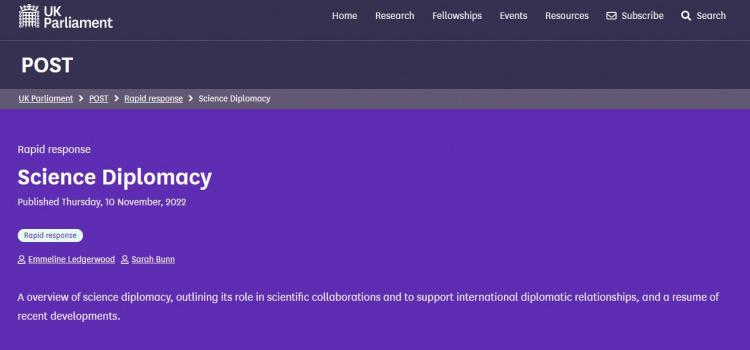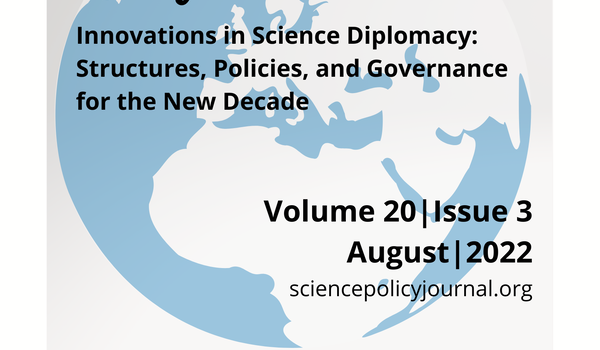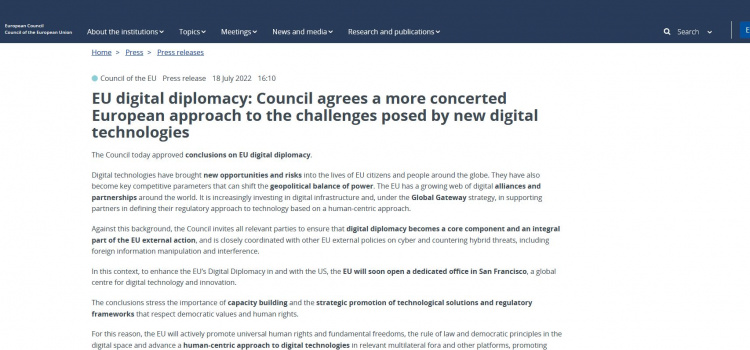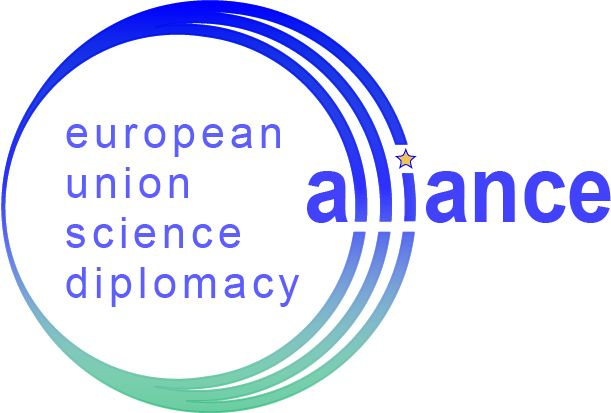In its latest publication, the Expert Group on the Economic and Societal Impact of Research and Innovation (ESIR) underlines how Europe’s established model of openness is being challenged. In an era of disruption, geopolitical tensions, climate challenges, and a technological
New architectures for bottom-up science diplomacy
New architectures for bottom-up science diplomacy: Learning from the evolving Portuguese diaspora in the UK by Luís Miguel Lacerda, Manuel Heitor, Jean-Christophe Mauduit Abstract Scientific diasporas and related non-state actors have increasingly been coming into play to permeate and promote modern science
SCIENCE DIPLOMACY. Foundations and practice
Edited by Simone Arnaldi (University of Trieste) What is science diplomacy? Why is it important in a world marked by global challenges such as climate change and confrontation between great powers? What knowledge can be mobilised to study this emerging
Seminar Report 2023: Thinking, Debating, and Shaping Science Diplomacy
Seminar Report 2023: Thinking, Debating, and Shaping Science Diplomacy By Eric Piaget, Diana Shendrikova, Luciana Radut-Gaghi, and Luk Van Langenhove Read the Report here. https://www.science-diplomacy.eu/wp-content/uploads/2023/06/REPORT-Thinking-Debating-and-Shaping-Science-Diplomacy.pdf
Comprendre l’essor de la diplomatie scientifique
Our dear colleagues and Alliance members from the Agence Universitaire de la Francophonie (AUF) Marielle Payaud and Olfa Zéribi recently published an interesting piece in “The Conversation”. Titled “Comprendre l’essor de la diplomatie scientifique” they inform about science diplomacy and
History and Science Diplomacy (Histoire et diplomatie scientifique)
Histoire et diplomatie scientifique (Histoire, Europe et relations internationales 2022/2 (N° 2) Coordinated by Léonard Laborie This special issue on history and science diplomacy is published in French, but contains highly interesting contributions in English language. Among the team of authors are
POST rapid response: Science Diplomacy (Nov. 2022)

The UK Parliamentary Office of Science and Technology published a Rapid response on the topic of Science Diplomacy on Thursday, 10 November, 2022. It provides an overview of science diplomacy, outlining its role in scientific collaborations and to support international
Innovations In Science Diplomacy (JSPG-UCL STEaPP Special Issue)

The Department of Science Technology, Engineering & Public Policy, University College London (one of the associated partners of the EU Science Diplomacy Alliance) partnered with the Journal of Science Policy & Governance (JSPG) to introduce Volume 20, Issue 3, of
Council Conclusions on EU Digital Diplomacy, 18 July 2022

The Council agreed on a more concerted European approach to the challenges posed by new digital technologies and approved conclusions on EU digital diplomacy. Digital technologies have brought new opportunities and risks into the lives of EU citizens and people
Dispatches from the South China Sea: Navigating to Common Ground
Synopsis: The impact of continuous coastal development, reclamation, destruction of corals, overfishing and increased maritime traffic places all of us on the front lines of preserving our oceans. Marine biologists, who share a common language that cuts across political, economic

